Carleton is a leader in finding solutions to the emerging climate change challenges of our time. Our leadership in sustainability has been recognized through numerous public commitments and partnerships. See the list below for our current commitments and partnerships in sustainability.
Commitments to Sustainability Leadership
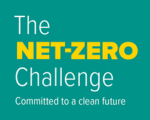 Carleton is a proud official participant in the Government of Canada’s Net-Zero Challenge, launched in 2022. This voluntary program motivates organizations to create and execute credible strategies for achieving net-zero emissions in their facilities and operations by 2050.
Carleton is a proud official participant in the Government of Canada’s Net-Zero Challenge, launched in 2022. This voluntary program motivates organizations to create and execute credible strategies for achieving net-zero emissions in their facilities and operations by 2050.
 Carleton is a member of the University Global Coalition, a global platform of higher education organizations dedicated to collaborating with the United Nations to advance the Sustainable Development Goals (SDGs).
Carleton is a member of the University Global Coalition, a global platform of higher education organizations dedicated to collaborating with the United Nations to advance the Sustainable Development Goals (SDGs).
 Carleton is a member of the Sustainable Development Solutions Network, a collaborative platform that takes an integrated approach to advancing the SDGs and the Paris Agreement. The platform focuses on education, research, policy analysis, and global cooperation.
Carleton is a member of the Sustainable Development Solutions Network, a collaborative platform that takes an integrated approach to advancing the SDGs and the Paris Agreement. The platform focuses on education, research, policy analysis, and global cooperation.
 Nature Positive Universities are taking proactive steps to halt and even reverse nature loss, allowing species and ecosystems to start to recover. Being ‘Nature Positive’ means that Carleton is reviewing species and ecosystems harmed by our activities and looking towards enhancing the positive impacts of nature on our campus.
Nature Positive Universities are taking proactive steps to halt and even reverse nature loss, allowing species and ecosystems to start to recover. Being ‘Nature Positive’ means that Carleton is reviewing species and ecosystems harmed by our activities and looking towards enhancing the positive impacts of nature on our campus.
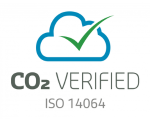 Carleton has undergone external verification of our greenhouse gas emissions inventory. This process aligns with ISO 14064-3, which provides specifications and guidance for validating and verifying greenhouse gas reports, and it meets the requirements of the EPS Regulations.
Carleton has undergone external verification of our greenhouse gas emissions inventory. This process aligns with ISO 14064-3, which provides specifications and guidance for validating and verifying greenhouse gas reports, and it meets the requirements of the EPS Regulations.
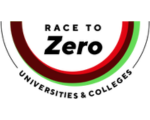 Carleton takes pride in its membership in the Race to Zero for Universities and Colleges. This global initiative, powered by the UN Environment Programme, EAUC, and Second Nature, is dedicated to inspiring leadership and promoting action in the education sector.
Carleton takes pride in its membership in the Race to Zero for Universities and Colleges. This global initiative, powered by the UN Environment Programme, EAUC, and Second Nature, is dedicated to inspiring leadership and promoting action in the education sector.
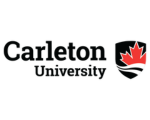 Carleton is a signatory of the ‘Investing to Address Climate Change: A Charter for Canadian Universities.’ The charter outlines the responsibility of universities to address the challenges of climate change and encourages its signatories to establish principles and practices aligned with this commitment.
Carleton is a signatory of the ‘Investing to Address Climate Change: A Charter for Canadian Universities.’ The charter outlines the responsibility of universities to address the challenges of climate change and encourages its signatories to establish principles and practices aligned with this commitment.
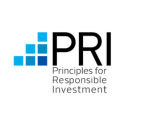 Carleton is also a signatory to the United Nations-supported Principles for Responsible Investment (PRI), which are considered best practices in the area of responsible investment.
Carleton is also a signatory to the United Nations-supported Principles for Responsible Investment (PRI), which are considered best practices in the area of responsible investment.
Partnerships and Collaborations On Campus
Carleton is home to some of the great environmental and climate change thinkers such as the Canada Research Chair (CRC) in Climate Change Impacts/Adaptation in Northern Canada and scientists leading the next IPCC (Intergovernmental Panel on Climate Change) Special Report on the Ocean and Cryosphere in a Changing Climate (SROCC).
Other partnerships and collaborations: Global Gas Flaring Reduction Partnership (GGFR), Natural Resources Canada, Natural Sciences and Engineering Research Council (NSERC), Environment Canada, Petroleum Technology Alliance of Canada (PTAC), and United Nations Climate and Clean Air Coalition (CCAC).